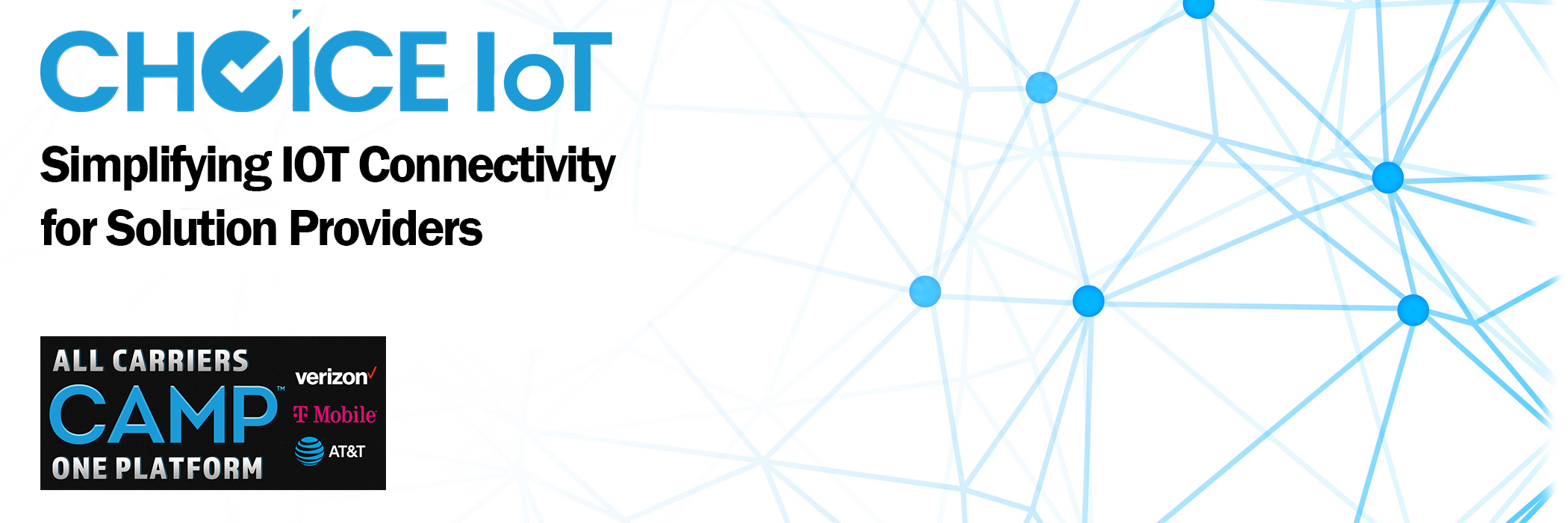
Carrier Device Certification
 Before building or selecting a device for use on a cellular network, it is important you ensure it has the proper certifications. All US carriers require PTCRB, FCC and Carrier (Carrier direct labs) certifications prior to a device being deployed on their networks.
Before building or selecting a device for use on a cellular network, it is important you ensure it has the proper certifications. All US carriers require PTCRB, FCC and Carrier (Carrier direct labs) certifications prior to a device being deployed on their networks.
Here are some of the requirements with links listed below to each to help you. The Choice IoT can help guide you and answer questions to ensure you get all the proper certifications needed to allow your device to operate properly and provide your customers with the best experience. Reach out and let one of our experts answer any questions and help you along the way!
PTCRB Certification:
PTCRB (PCS Type Certification Review Board) certification ensures cellular devices meet industry standards for network compatibility and performance. It validates that devices comply with GSM, UMTS, and LTE specifications, ensuring seamless interoperability with global networks. PTCRB certification is crucial for manufacturers to launch devices in markets requiring network compatibility verification, such as North America. Compliance assures consumers of reliable connectivity and network compatibility, fostering trust in the product. PTCRB certification addresses the need for standardized testing and validation to guarantee seamless communication between cellular devices and networks, ensuring optimal performance and user experience. This is required by all US Carriers before you device is approved for use on their networks.
FCC Certification:
FCC (Federal Communications Commission) certification is mandatory for electronic devices sold or used in the United States to ensure they comply with regulatory standards for electromagnetic interference (EMI) and radio frequency (RF) emissions. This certification verifies that devices operate within specified limits to prevent interference with other electronic equipment and maintain spectrum efficiency. The FCC certification process involves testing conducted by accredited laboratories to ensure devices meet technical requirements and adhere to FCC regulations. Compliance with FCC standards is essential to ensure the safety, reliability, and compatibility of electronic devices with other equipment and communication networks, fostering consumer trust and confidence in the products. Additionally, FCC certification facilitates market access by demonstrating regulatory compliance, enabling manufacturers to legally sell their products in the US market.
Carrier Certification:
Cellular carrier certification is a crucial step for ensuring that cellular devices meet the technical and regulatory requirements of specific carriers, enabling seamless operation on their networks and access to services for end-users. Each carrier has specific requirements that must be passed to gain approval for access to their network. This includes requirements related to radio frequency (RF) performance, signal modulation, power levels, and network protocols (such as GSM, CDMA, LTE, 5G, etc.). The carrier reviews the certification documentation to ensure that the device meets its technical and regulatory requirements. If the device passes the review process, the carrier issues certification approval, indicating that the device is authorized for use on its network.
Choice IoT can provide the guidance to help you navigate the certification process. Schedule time with our team to discuss your solution and let us help you speed up the process of getting your device properly certified so that you can your customer can have the best experience!
Helpful Links:
![]() FCC certification Labs:
FCC certification Labs:
https://www.fcc.gov/testing-laboratory-qualifications
PTCRB certification Labs:
https://www.ptcrb.com/authorized-test-labs
![]() Carrier Certification Pages:
Carrier Certification Pages:
| https://www.t-mobile.com/business/solutions/iot/device-certification#modules | |
| https://iotdevices.att.com/networkready.aspx | |
| https://opendevelopment.verizonwireless.com/get-certified |
Request a free consultation with one of our experts!
Choice offers competitive price points and as such has been flexible in giving us the data plans we need to accomplish and pass on these savings to our own end customers. Typically, Spectrotel can save customers up to 30% on their existing wireless data spend.
